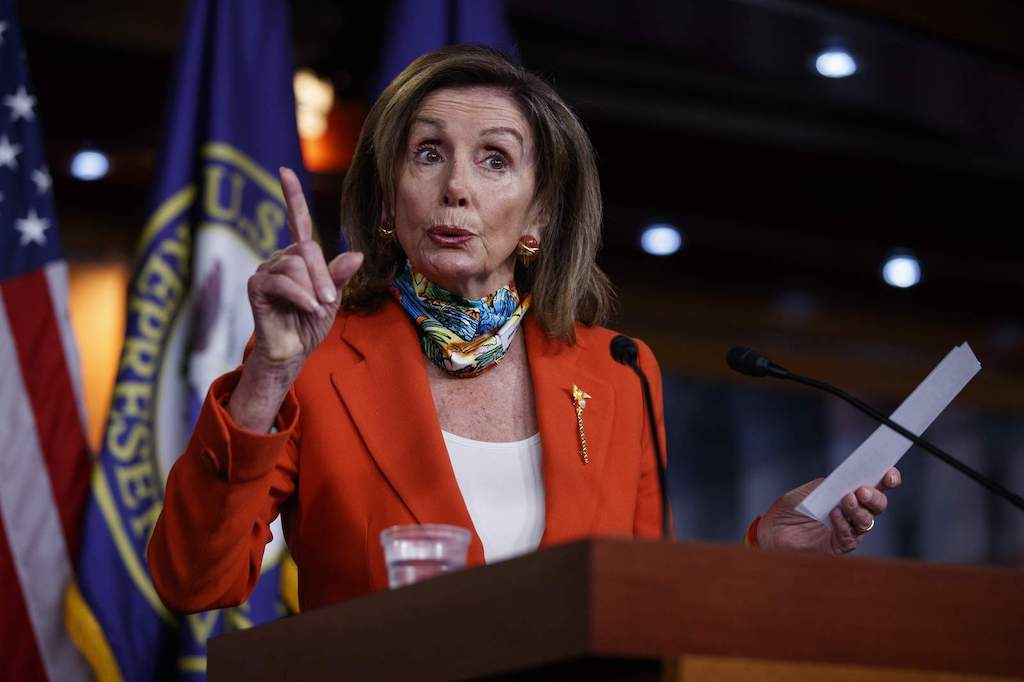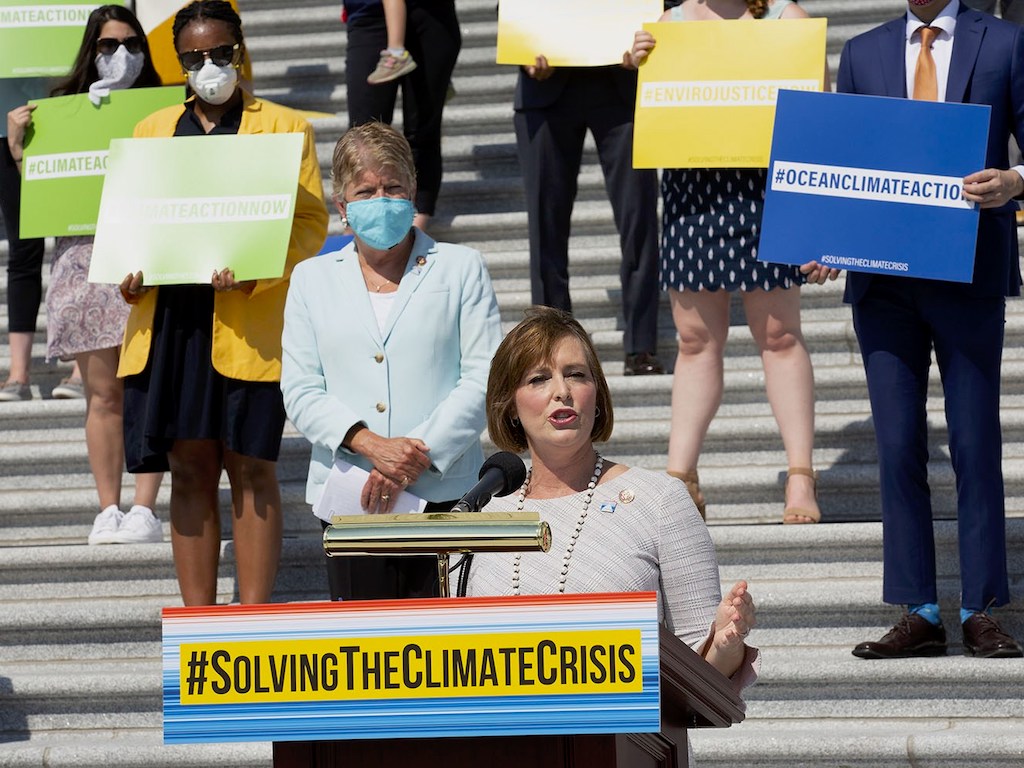4 Mins Read
House Democrats in the United States have released a new comprehensive report with an aggressive climate emergency “action plan” to eliminate the country’s emissions by 2050. The 500-page plan spells out specific steps that the federal government under full Democratic control will take across all sections of the economy, with key investments proposed for infrastructure, clean energy and achieving environmental and social justice.
Made public on Tuesday (June 30), the U.S. House Democrats have bold climate action ambitions to slash greenhouse gas emissions to net-zero within the next three decades. Compiled by the House Select Committee on the Climate Crisis, which was established in 2018 when the Democrats regained majority control of the House, the report is a clear nod to the earlier Green New Deal initiative as well as relevant environmental and racial justice topics.
Key themes running throughout the congressional climate action plan – which Democratic presidential nominee Joe Biden has promised to pursue if he wins the election in November – include investment in clean energy and infrastructure, providing worker assistance towards a fairer economy, efforts to support the needs of traditionally under-served communities, public health and revamping the current agricultural system.
Described as a “roadmap for Congress to build a prosperous, clean energy economy that values workers, advances environmental justice, and is prepared to meet the challenges of the climate crisis,” one of the most detailed targets in the report is to accelerate the transition to electric cars.

In order to slash the 29% of the U.S. total greenhouse gas emissions coming from the industry, the Democrats are calling for all new passenger vehicles sold from 2035 onwards to only be electric, and other car sales to be fully electric by 2040. Recommendations to achieving this goal include establishing a zero-emissions vehicle standard nationwide and extending electric vehicle tax credits.
In other areas of the transportation sector, the Democrats are calling for double the funding for public transport, investing in shipping technologies, upgrading rail systems, exploring zero-carbon long-haul trucking and research into transit systems that are climate-resilient.
In the event of a Democratic government, there will also be an emphasis on ensuring renewable energy sources power the U.S. electricity mix. Currently, electricity production accounts for 28% of the country’s emissions – a figure that may continue growing if the U.S. continues its reliance on dirty fossil fuels, a likely scenario under a Republican government.
Democrats plan to ensure net-zero emissions from the electricity sector within the next two decades by making investments in energy storage, long-range electric infrastructure and increasing tax credits for renewable sources such as wind, solar and geothermal energy. It will further end subsidies for oil and gas drilling on public lands – though it still falls short from eliminating all dirty energy subsidies.
On the agricultural front, the plan seeks to dramatically ramp up funding for climate-smart farming activities, which can have the potential to help sequester large amounts of carbon.
“U.S. agricultural soils generally present with 1% or less soil carbon, but studies show that among farmers practicing robust soil health practices, soils present with between 3% to 6% of soil carbon,” the Committee report writes.

Farmers will benefit from incentives to incorporate energy-efficient and renewable on-farm infrastructure, which will not only help protect their land from non-agricultural uses, but would help bolster carbon sequestration efforts, while regional food systems will see additional measures to curb food waste and food loss – an enormous source of carbon emissions all over the world amid malnutrition and hunger crises.
While the most comprehensive plan to date, it is nearly impossible for the climate action plan to pass in a Republican-controlled Senate. It would require the Democrats to not only take back the Senate, but also win the White House election coming in November – and some analysts say that even then, it could be a hard sell within some of their own more politically-centrist Democratic party members.
On the other hand, some grassroots climate organisations believe that the document’s emissions reduction targets are still too weak given the severity of the climate crisis. “This is not an emergency response,” said Laura Berry, director of research and policy at the grassroots organisation The Climate Mobilisation. “The solutions proposed to fail to meet the challenge of the existential planetary crisis we face.”
“Collectively, the proposals in the plan would only cut greenhouse gas emissions by 37% by 2030, and 88% by 2050, and are wholly inadequate to prevent the risk of catastrophic climate disruption,” she added.
But given that the Trump administration has withdrawn from the Paris Agreement altogether and more has plans to rescind from environmental regulations, the proposal will provide hope that at least, there will be concrete climate action from the world’s biggest economy if the Democrats are able to retain their House majority, take over the Senate and the White House come January 2021.
Lead image courtesy of Stefani Reynolds / Getty Images.
.




